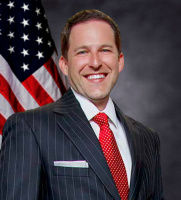Frisco DUI-DWI Lawyer, Texas
Sponsored Law Firm
-
 x
x

Click For More Info:
-
Andrew V. Howard, PC
1717 Mckinney Ave Suite 700 Dallas, TX 75202» view mapCriminal Experience You Can Trust
Attorney Andrew Howard is dedicated to protecting the rights of his clients and will stop at nothing to ensure they are treated fairly in court.
214-226-1848
Hunter A. Biederman
Criminal, DUI-DWI, Juvenile Law
The “Go to Guy for DWIs”.
Hunter Biederman, often referred to as the “Go to Guy for DWIs” is a founding partner of the Law Offices of Biederman & Burleson P.L.L.C., located... (more)
Darlina Crowder
Criminal, Domestic Violence & Neglect, Felony, DUI-DWI, Misdemeanor
Attorney Darlina C. Crowder provides criminal defense representation for clients in the Plano, Texas area. She has been practicing law in the U.S. Dis... (more)
Albert Wilson Rowland
Domestic Violence & Neglect, Family Law, DUI-DWI, Criminal
Status: In Good Standing Licensed: 10 Years
Rocio Esmeralda Hernandez
DUI-DWI, Personal Injury, Insurance, Domestic Violence & Neglect, Mass Torts
Status: In Good Standing Licensed: 16 Years
 Andrew Howard Dallas, TX
Andrew Howard Dallas, TX


